#thanks so much translator
Explore tagged Tumblr posts
Text




links to some translations under the cut
и заодно выложу пару любопытным образом перекликающихся переводов потрясающих фанфиков!
тьма нынче обретает жизнь великолепного автора @/goodlucktai
и еще одна покорившая меня зарисовка rem - а тени пусть уходят
#every time im like. wait. i can give Mikey freckles? i CAN give Mikey freckles!! no one's stopping me!#thank you all SO MUCH for 1000+ followers!!#i'm happy#rottmnt#rise of the tmnt#riseofthetmnt#rottmnt donnie#rottmnt mikey#rottmnt raph#rottmnt leo#rottmnt splinter#rise leo#rise donnie#rise mikey#rise raph#rise splinter#look the idea that it's Splinter who makes all their gear really touches me#was sewing always a hobby for Splinter?#or was he forced to sew just something for his mutated self and little children with very unique body proportoins?#happy rottmnt movie anniversary everyone!#eturn art#eturn translation#перевод на русский
6K notes
·
View notes
Text

🌱✂️ (crop from this month's patreon piece)
twitter | ig | inprnt | patreon | store
#thanks to everyone who's supported me there over the past couple of years#i know i haven't posted much publicly#most of what i've done lately is only on there bc it's either hard to crop and share nicely#or it's just sketches#the past 2ish years have been the worst of my life so unfortunately that translates also to less art to share
6K notes
·
View notes
Text











WEI WUXIAN & JIN RULAN in THE UNTAMED ── episode 40.
#jin ling#wei wuxian#theuntamededit#mdzsedit#cqledit#userfra#sandushengshou#dramasource#cdramaedit#asiancentral#the untamed#userbbelcher#chewieblog#tvedit#*#*gif#*1k#jiang yanli and jin zixuan having a staring contest in heaven rn#anyway translation by me bc i hated the official netflix ones#i feel like they lacked so much of his Drama#also. we should all be thankful lan clan raised a yuan bc woooow
2K notes
·
View notes
Text
Erik: Don’t worry Charles. As long as I am here, we will stand together even if the whole world is our enemy.
Charles: Thank you Erik, but may I ask why the whole world is our enemy?
Erik: Because I am here.
#xmen#x men first class#cherik#charles xavier#erik lehnsherr#magneto#professor x#incorrect quotes#incorrect xmen quotes#hehe stand#get it?#something is just better not to know Charles#translation from an anon post on Chinese Weibo :D#thank you so much for the meme :D
2K notes
·
View notes
Text
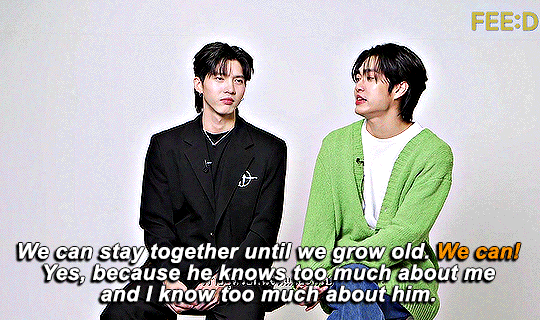
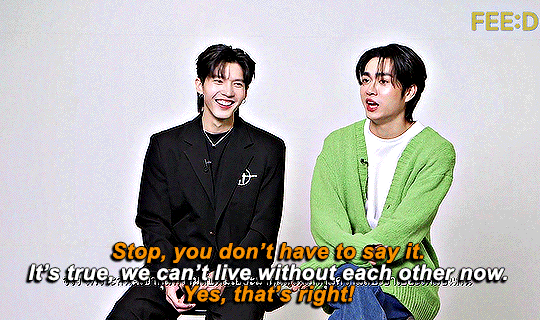
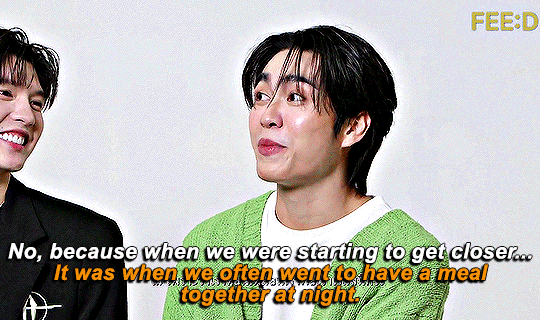
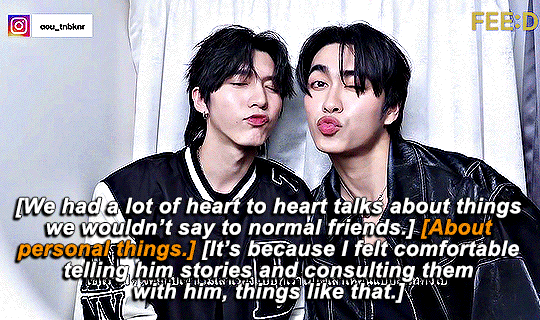
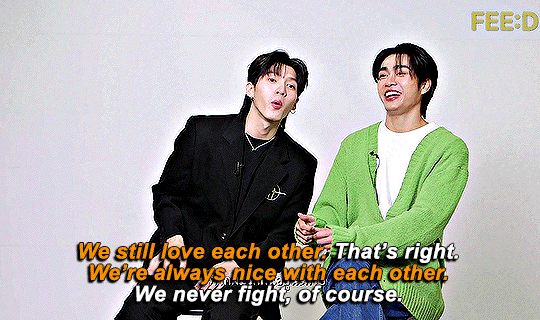
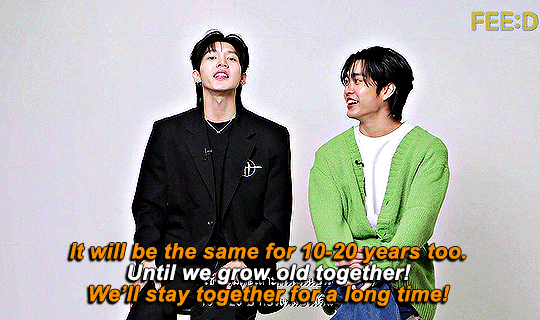
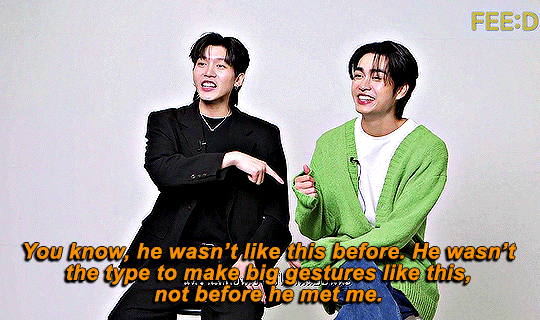
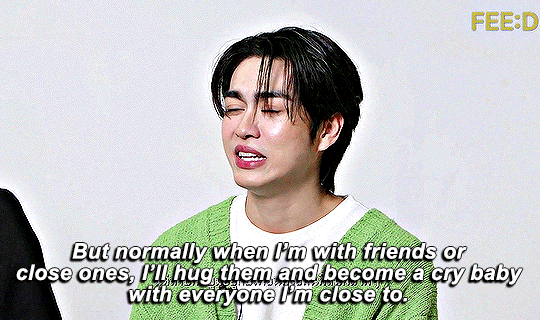
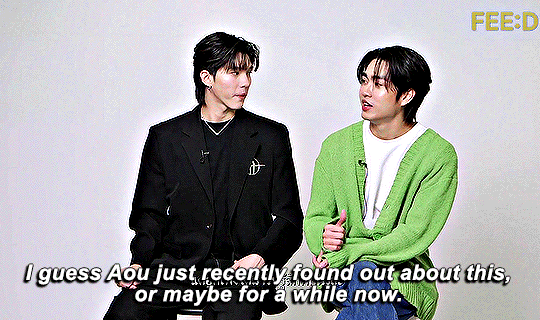
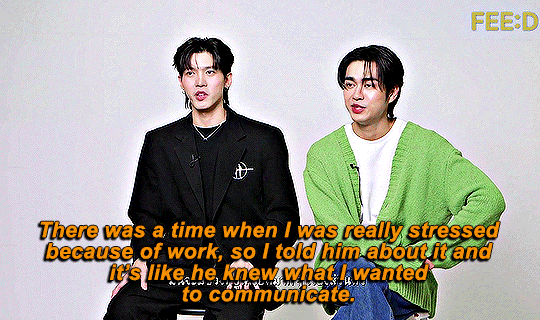
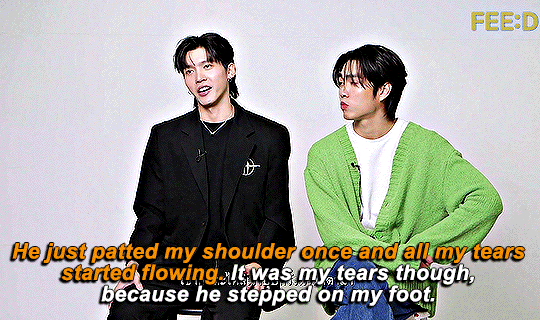
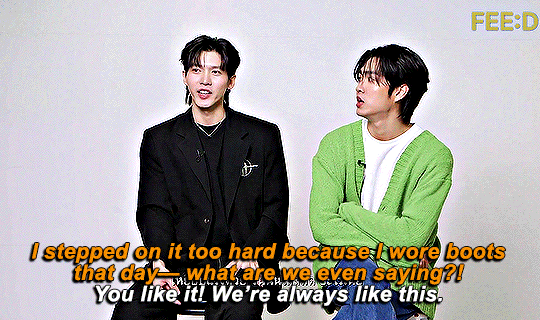
AOUBOOM'S WORKING GOALS 🌼🧸 #FEEDxAouBoom | translation cr. ©
#aouboom#aou thanaboon#boom tharatorn#we are the series#we are cast#lana.gifs#aouboom.gifs#tw: flashing#huge thanks to ree for the help with identifying overlapping voices + added pieces + translation adjustments 🤍🩷#might gif more from this interview because there's really so so much worth the work#definitely a recommended view for my fellow aouboom peeps by the way in case you missed it#color legend: orange is aou & white is boom
575 notes
·
View notes
Text
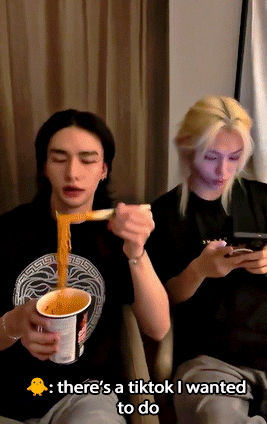
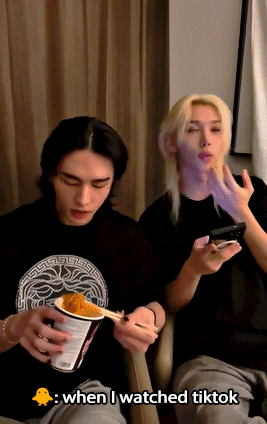
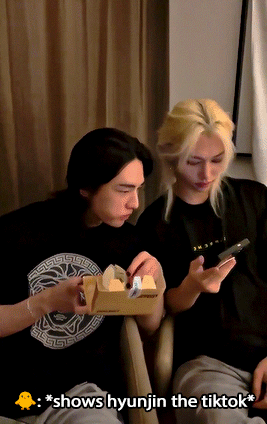
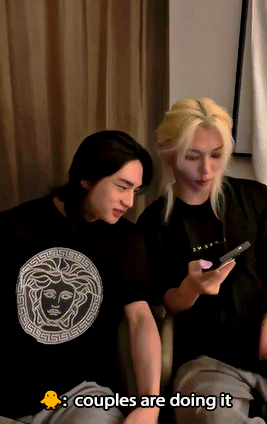

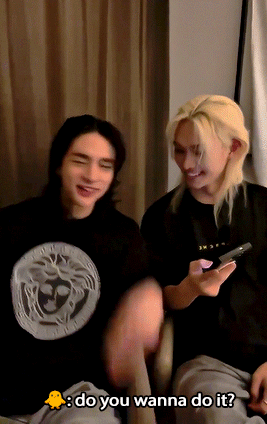
hyunjin and felix instagram live // november 24th, 2024
felix showing hyunjin a tiktok video on a trend couples have been doing that he wants to do and hyunjin saying they should do it 🫠 OKAY the tiktok btw:

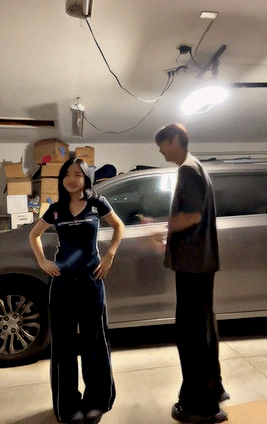
#hyunlix#hyunjin#felix#stray kids#skz#bystay#hyunlixsource#skzco#hyunlix*#staydaily#hyunjinsource#dancerachasource#mine*#gifs*#hyunlix: mine#SO VERY NORMAL ABOUT THIS SO NORMAL SO SANE#(<- she's lying)#OH BOIIIIIIIIIIIIIIIIIIIIIIIIIIIIIIIIIIIIIIIIIIIIIIII#so many thoughts so much internal screaming#acting like i dont care if they make it and post it so it actually gets posted 🙄come on hyunlix do it u won't (plesepleasepleasepleaseplea)#also big thanks again to hwgflx for the translations ♡
347 notes
·
View notes
Text
Pac: This is the new me, ok? I want you to welcome... the new Pac! [...] This skin is really cool, I think I'm gonna use this more often.
Himaru: ...What happened to you, man? Did you get run over? 😰
Pac: [Laughs] Don't judge me, don't judge me!
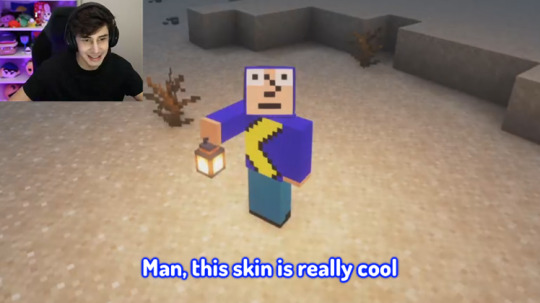
Being ugly in Arkanis is a crime, and unfortunately for all of us, Pac loves being a criminal. 😓
[ Full Subtitle Transcript ↓ ]
—
Pac: Guys– This is the new me, ok? I want you to welcome... the new Pac!
Pac: [Laughs]
[Pac gets kicked from the server with the message: "Change this"]
Pac: [Laughing] No! No! No– I won't change, I won't change, I won't change! I won't change! Let me- let me in! No no no– What a dictatorship– there can't be a dictatorship here, no– No, I won't change! [Stammers] I'm- I'm myself! I'm myself!
Pac: [Pinches his nose so he has a nasally voice] Hi friends, welcome to class. I'm going to talk like that, ok? I'll even turn off the facecam, because today, I'm going to– I'm kidding, no no no.
Pac: Man, this skin is really cool, it really is. I think that this– I'm gonna use this more often, man. [Reading chat] "Halloween is over" Guys, this– This is who I am now! Who I am– This is me now, I'm this person here.
[Red text appears on the screen saying "30 seconds to change"]
Pac: "30 seconds to change–" Hang on, what is this?! No– calma, what is–? Guys, for the love of god–
[Another warning appears saying "20 seconds to change"]
Pac: No!!! No! No no no! No no no! You can't do this! You can't do this here. You- you can't. You can't make me change my skin.
[A final warning appears saying "10 seconds to change"]
Pac: No– You can't, I won't take it off! I'm going to my class now, I have to go to class! This is my "studying" skin! I- I–
[Pac gets banned]
Pac: [Hits his desk]
Dono: The skinmakers in chat are crying, having heart attacks, collapsing. It's horrible, dude.
Pac: [Laughs] It's not that ugly, it's fine, it's good.
Himaru: [Long pause] ...What happened to you, man? Did you get run over?
Pac: [Laughs] Don't judge me, don't judge me! Ok? Look at- look at- look at JVNQ! He has a funny face too, but nobody says anything about it!
Himaru: No man, I'm not judging you, but– I just wor- I'm just worried! [...] Well for me, I'll be serious with you: it doesn't matter what's on the outside, ok? What matters is what's inside, got it?
Pac: Thank you. [He hugs Himaru] Do you think I'm poggers? Do you think I'm poggers? Say it.
Himaru: No Pac, it doesn't matter that you look ugly, ridiculous, like a truck reversed into you then ran you over, like someone hit you–
Milo: my god
Himaru: –like Anderson Silva crushed you in the ring– Hey, it doesn't matter! What matters is that your heart is beating.
JV: And you have a home!
Himaru: Understand? Give love to others, ok?
Pac: My god.
Milo: he was saving those insults
Himaru: And that's all, ok man? You can be at peace, ok? I won't- I won't judge you, I'll just... I'll just do one thing, man.
Pac: What are you doing?
Himaru: I'm just going to avoid eye contact, ok? But I'm still talking to you, I'm still listening, ok? I hear you.
Pac: ...I can't believe this.
#Pactw#Arkanis#Himaru#JVNQ#Milo#Pac#December 3 2024#I forgive all of cubito Pac's rights and wrongs EXCEPT THIS#This was cc Pac's fault but he frickin made it plot relevant#Thank you a WHOLE bunch to Kia for looking over this#I don't think I can do another translated edit this long again 💀 I don't have the stamina#As much as I love Arkanis and Pac it's just too much to do solo#I need someone to drop off transcripts at my doorstep so I can just add them into Sony Vegas#without worrying about translations or transcript stuff#o(-( sorry to complain in the tags I'm just a bit tired and frustrated#I love Pac and Arkanis!!! I wish I could do more!!! It's such a cool series but I don't speak Portuguese#So alas. I do what I can#For real though – literally everyone who's ever helped me with translation stuff is the only reason I'm able to keep doing this#So thanks to you guys#Especially Kia who has put up with so many of my questions and has the patience of a saint#Edited#Translated#Subtitles#Also shoutout to the Arkanis admins for trying to stop this disaster pftt. That was so funny
182 notes
·
View notes
Text
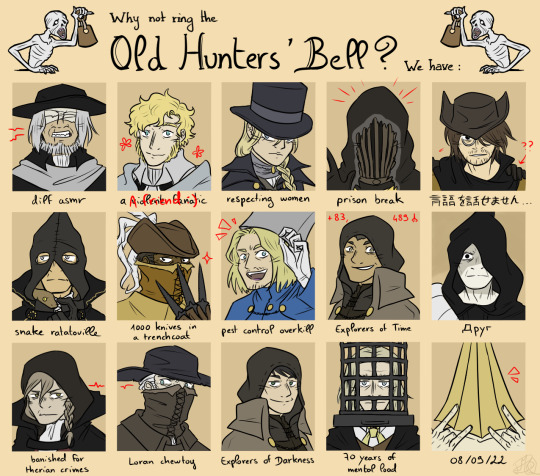
good hunter's emergency contacts summons fieldguide
#bloodborne#spare your eyes and view this in full size plz#half of them don't have much fanwork in their name so this time i'm gonna tag everyone sorry#ok (breathes in)#father gascoigne#vileblood hunter alfred#old hunter henriett#defector antal#yamamura the wanderer#younger madaras twin#old hunter henryk#valtr master of the league#tomb prospector olek#madman wallar#beastclaw jozef#old hunter vitus#tomb prospector gremia#mensis scholar damian#queen killer#phew#tag yourself or something#rubiart#just in time for last day of break (dissolving emoji)#yamamura's line means 'does not speak the language' - thanks again powerup for checking the translation AND my handwriting :}
243 notes
·
View notes
Text
BSD Official Guidebook Gongeroku - characters profiles
Finally stopped procrastinating Got around to arranging the profiles from the fifth official guidebook Gongeroku. Thank you so so much @justplaggin for helping out fix my messy translations, your help was immeasurable (╥﹏╥) Except for young Oda, I didn't include profiles that only listed age / height / weight since they didn't feature any info we didn't know already.
Other guidebooks profiles by @/looking-for-stray-dogs (listing here for easy access / having them all in one place): Shinkaroku; DEAD APPLE; Tenkaroku by me.
Untold Origins arc
Ranpo Edogawa Age: 14 years old Height: 160cm Weight: Unknown First thing he does when he wakes up in the morning: Praise himself for being a great detective A habit he can't help: The marbles in Ramune are so pretty, he has to take them home If he wasn't at the detective agency, what would he be doing now?: Can't even imagine Where does he see himself in 10 years?: Supporting the president, just like he is now
Yukichi Fukuzawa Age: 32 years old Height: 186cm Weight: Unknown First thing he does when he wakes up in the morning: Take a deep breath and let the energy flow to his abdomen A habit he can't help: Walking by sliding his feet, keeping the unwavering figure of a swordsman A moment recently that made you feel just how much Ranpo has grown?: The average number of candies he eats went from 18 to 17. Where does he see himself in 10 years?: Thanks to his subordinates' efforts, the city will have become peaceful, increasing his spare time a little.
Sakunosuke Oda Age: 14 years old Height: 165cm Weight: Unknown
Canon
Osamu Dazai Age: 22 years old Height: 181cm Weight: 67kg What color would you compare yourself with?: Colorless and transparent. Because I don't see any value either in living or in wearing colors. Where do you see yourself in 10 years?: Hopefully passing away
Atsushi Nakajima Age: 18 years old Height: 170cm Weight: 55kg What color would you compare yourself with?: White. My hair is white, and Akutagawa's is black, so, a color as different as possible. Where do you see yourself in 10 years?: I wonder if I'll still be alive in this bewildering city…
Kyouka Izumi Age: 14 years old Height: 148cm Weight: 40kg What color would you compare yourself with?: Gray, rather than white. It was black before, and now I want it to be white, but the past still has meaning in itself. Where do you see yourself in 10 years?: Continuing to support Atsushi
Doppo Kunikida Age: 22 years old Height: 189cm Weight: 78kg What color would you compare yourself with?: The color of steel. The materialization of flawlessness and unshakeable ideals, steel. Where do you see yourself in 10 years?: According to my notebook, my salary will have increased by 47%, my subordinates by 4, my medals for contrubuting to peace by 3… (explanation continues for 30 minutes)
Ryuunosuke Akutagawa Age: 20 years old Height: 172cm Weight: 50kg What color would you compare yourself with?: Black. It's the color of the overcoat that Dazai-san gave me. Where do you see yourself in 10 years?: Becoming the strongest ability user in Yokohama
Chuuya Nakahara Age: 22 years old Height: 160cm Weight: 60kg What color would you compare yourself with?: Red. Kajii once said that the fastest forward-moving things appear red from behind. Where do you see yourself in 10 years?: Expanding the mafia's territory to cover the whole country
Fyodor Dostoyevsky Age: Unknown Height: Unknown Weight: Unknown What do you want to eat now?: Appetite… I do not experience something like that. Something you always do before going to bed?: Pray to God What color would you compare yourself with?: The white of snow from my hometown If you could be born again, what would you want to become?: Most things, I've already become. A reward for hard work would be... : Listening to classical music all day
Saigiku Jouno Age: Unknown Height: 181cm Weight: Unknown What he believes are his strengths and weaknesses: His strength is his good hearing, his weakness is that he can't see. Motto: Send Tetchou flying Something he wants right now: Not being held responsible even if he torments a criminal to death Something that recently made him laugh: The captain was able to quietly approach and tickle him
Tetchou Suehiro Age: Unknown Height: 184cm Weight: Unknown What he believes are his strengths and weaknesses: His strengths are that he is the embodiment of justice and has a will of steel, his weakness is that he can't read people's true intentions. Motto: Justice of steel Something he wants right now: Enough space at home to put his weight training machine Something that recently made him laugh: The last time he laughed was when he was a baby, so he doesn't remember.
Michizou Tachihara Age: 19 years old Height: 176cm Weight: 62kg What he believes are his strengths and weaknesses: His strength is that he has a strong ability, his weakness is that he's not very smart Motto: Orders make me who I am Something he wants right now: A cool motorbike like Chuuya-san's, for commuting to work Something that recently made him laugh: Unintentionally giving the military police internal audit department a mafia-style glare
Teruko Ookura Age: Unknown Height: Indefinite Weight: Indefinite What she believes are her strengths and weaknesses: Her strength is her love for the captain, her weakness is that she can't see anyone but the captain. Motto: The society's dog, the strongest dog Something she wants right now: The captain's used socks Something that recently made her laugh: During practice, Jouno and Tetchou challenged the captain at the same time, but were beaten at their own game
Ouchi Fukuchi Age: 45 years old Height: 190cm Weight: Unknown What he believes are his strengths and weaknesses: His strength is being physically strong. His weakness is that he is too strong, and didn't develop a habit of delegating things to his subordinates. Motto: World peace Something he wants right now: A comfortable disguise (because people ask for his autograph wherever he goes) Something that recently made him laugh: All five of them (Hunting Dogs) having a pleasant talk
Nikolai Gogol Age: 26 years old Height: 184cm Weight: 68kg What he believes are his strengths and weaknesses: His strength is his talent for magic, his weakness is his fickle nature. Motto: Be as free as a bird Something he wants right now: Someone who understands him A reward for hard work would be... : Applause and praise from a crowd of people
Sigma Age: Unknown Height: 177cm Weight: 62kg What he believes are his strengths and weaknesses: Strength: being someone who battles on even in difficult circumstances. Weakness: everything else other than that. Motto: Ordinary people have their own, ordinary ways of fighting. Something he wants right now: A home to return to A reward for hard work would be... : Patting himself on the shoulder and saying “good job.”
#Thank you so much again Jay 🥺🥺🥺🙏🙏🙏😭😭😭#bsd ada#bsd hd#bsd doa#bsd#bungou stray dogs#bsd the untold origins of the detective agency#bsd s4#bsd s5#bsd translation#mine
245 notes
·
View notes
Note
What would one have to pay to see moonheart’s faith characters in the wof universe? i desire the cat dragons 🤲 (also big fan of your art and your characters :)) i love them all very much)
NOTHING!!! (they needed updating anyway :) )


#thank you so much anon!!#I should draw more of em I’m curious how Kestrel would translate#my art#oc art#wof art#wings of fire#dragon art#moonheart#hawkdive
263 notes
·
View notes
Text

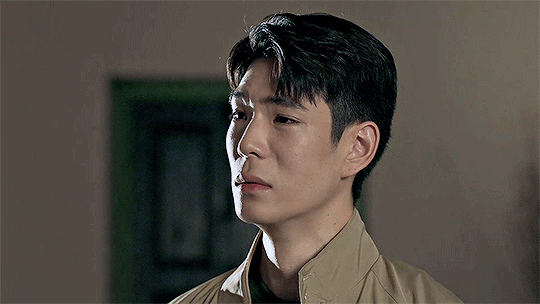
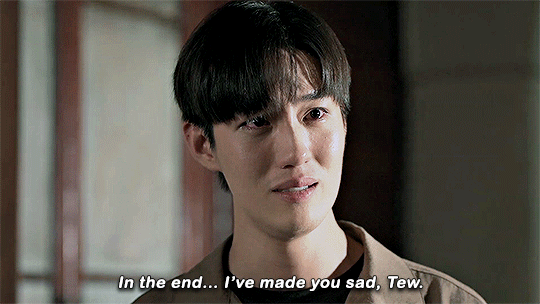

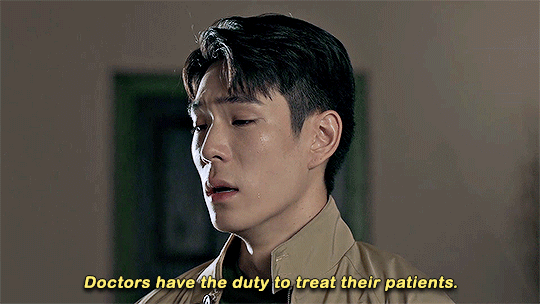



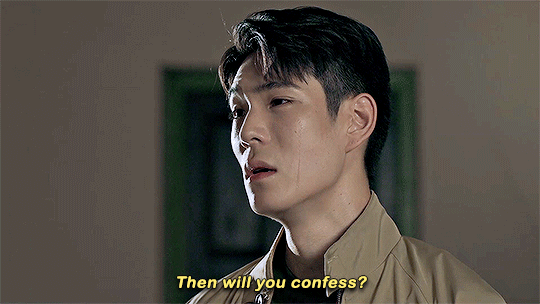
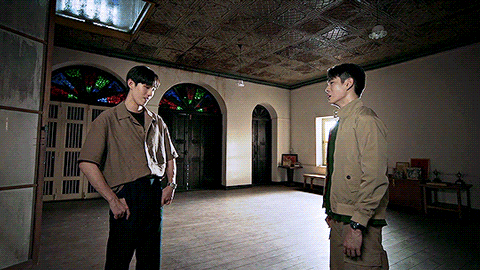
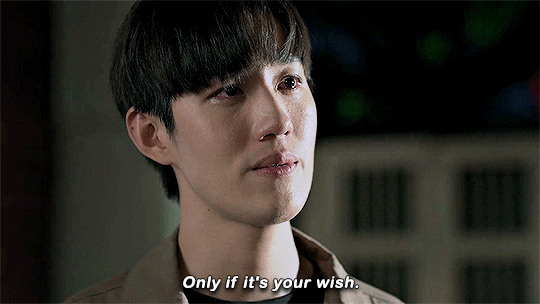
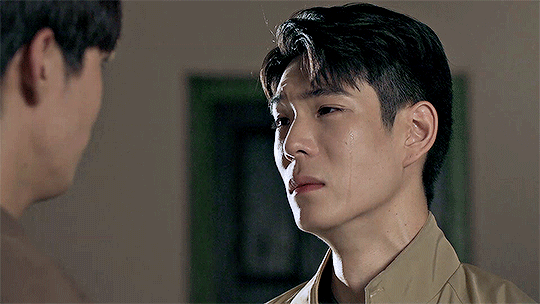
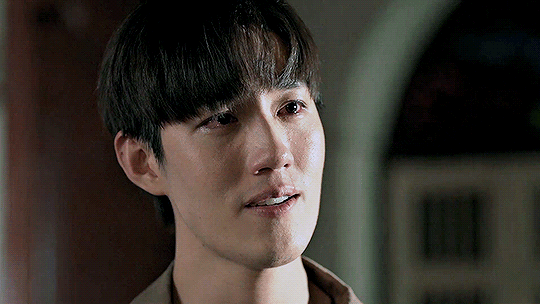
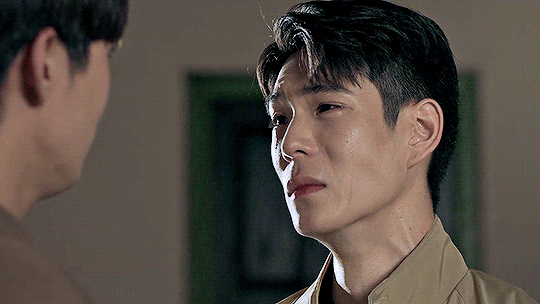



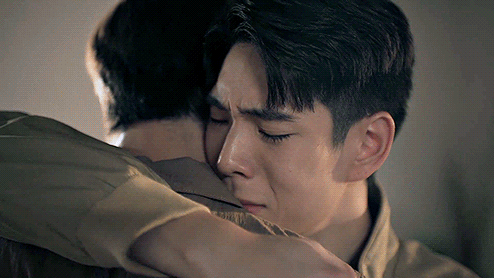

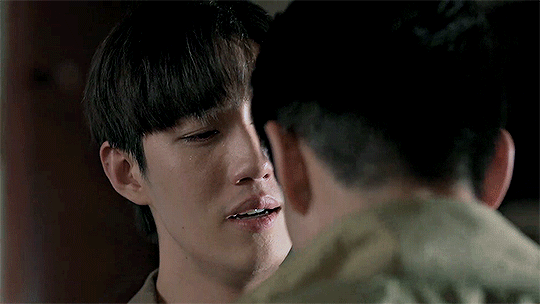
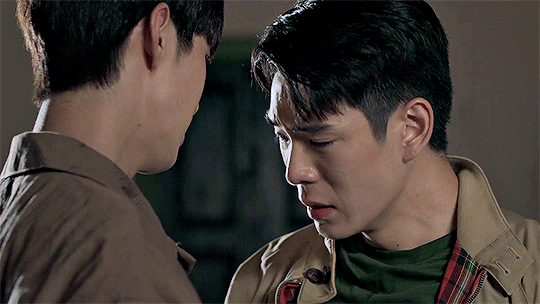


But you don't have any evidence... that I practiced euthanasia, other than my confession. Then will you confess? Only if it's your wish.
SPARE ME YOUR MERCY | 1.08
#spare me your mercy#jaylerr#jj krissanapoom#tor thanapob#spare me your mercy the series#euthanasia the series#smymedit#clairedgifs#smym#userjamiec#usersasa#userrain#userpharawee#userspring#userrzey#tobelle#thaidramaedit#forfive#rinblr#smymep8#yayyy finally done with part 3 aka the last part of this scene#had to do a lot of cross checking to correct the subs... not too far from iqiyi official sub but i didnt like some of their translations#if its you asking doesnt have the same weight as only if its your wish/request#and tew lines abt doctors and police duty have the same sentence structure and iqiyi engsub messed with that which i didnt like#i did have to take out some frames but mayhaps some unused gifs will get posted eventually#these three long gifsets is just my thank you to everyone who's watched smym with me#i learned so much not just from the series itself but also from all the discourse that the series has sparked
131 notes
·
View notes
Text

again a link to translation under the cut
Публикую последнюю часть великолепной серии фанфиков "желание умереть"!!! ААААА!!! (+ маленький бонус)
#Leo casually invading others beanbags#April is balancing for her life up there#but she's been given a Job#and she's taking it Very Seriously#Donnie is so proud of his son#and yes i will fight tooth and nail for Shelldon being alive after everything#rottmnt#rise of the tmnt#riseofthetmnt#rottmnt leo#rottmnt donnie#rottmnt mikey#rottmnt raph#rottmnt april#rottmnt shelldon#rise april#rise leo#rise donnie#rise mikey#rise raph#rise shelldon#THANK YOU FOR 1100+ FOLLOWERS AAAHH I LOVE YOU ALL SO MUCH#AAAAAAAAH#eturn art#eturn translation#перевод на русский
4K notes
·
View notes
Text
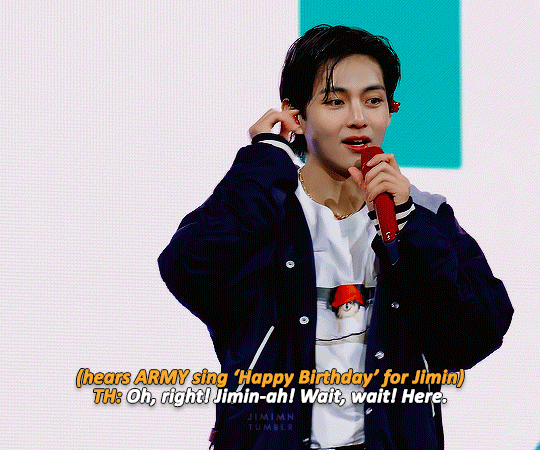
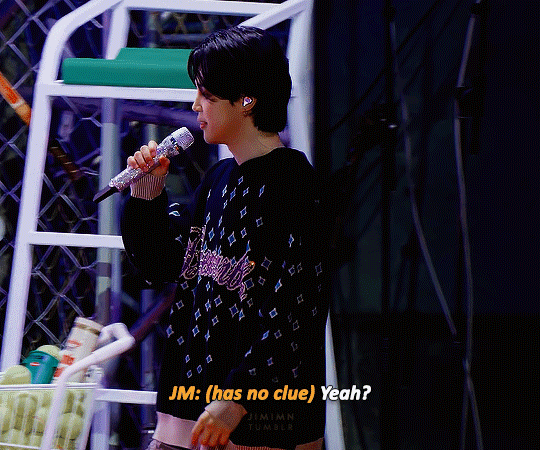


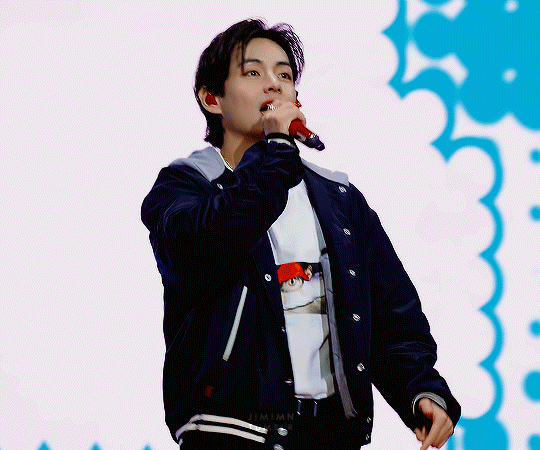
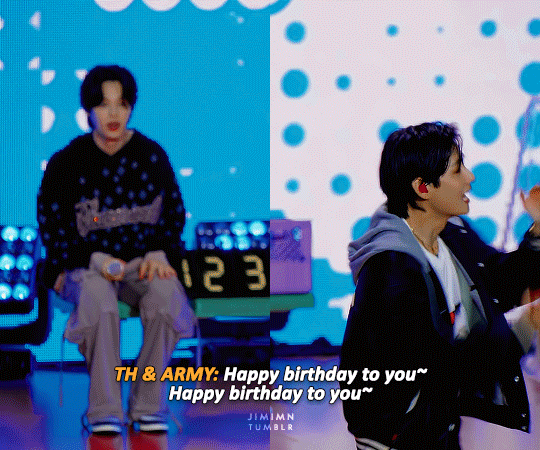
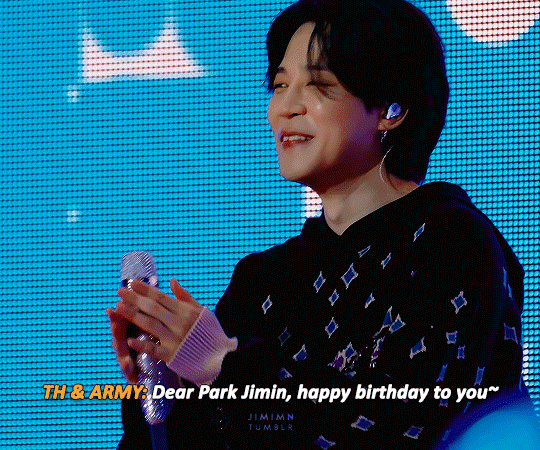


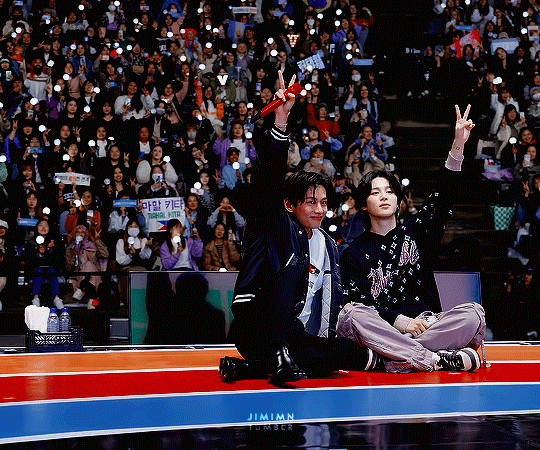
tae loves jimin so so so so so much 🥺 (transl. cr. taee)
#btsgif#jimin#taehyung#vmin#bts#userbangtan#btsedit#park jimin#kim taehyung#*#*jm#*th#*vmin#my laptop d*ed a thousand times while making this set so future sets depend on whether my laptop cooperates after the restart rip<3.#thank you so very much julia for the translation <3333.
1K notes
·
View notes
Note

Thanks for thinking of me! ___________ いつもリブログありがとです!

thank you for the drawing! your kirby is very cute <3
絵をありがとう!あなたのカービィはとてもかわいいです ❤️
#kirby#daily kirby#my art#not my art#0o-kamenozoki-o0#digital#hal laboratory#nintendo#asks answered#I have been too sick to practice any japanese at all for several years so I hope I picked the right words >n<#(and I never knew that much to start with tbh)#but it seems only fair that I make the effort too.#this made me very happy to see in my inbox thank you!#(I have no confidence at all in my ability to translate that thought though lol)
150 notes
·
View notes
Text
Every now and then I think about how subtitles (or dubs), and thus translation choices, shape our perception of the media we consume. It's so interesting. I'd wager anyone who speaks two (or more) languages knows the feeling of "yeah, that's what it literally translates to, but that's not what it means" or has answered a question like "how do you say _____ in (language)?" with "you don't, it's just … not a thing, we don't say that."
I've had my fair share of "[SHIP] are [married/soulmates/fated/FANCY TERM], it's text!" "[CHARACTER A] calls [CHARACTER B] [ENDEARMENT/NICKNAME], it's text!" and every time. Every time I'm just like. Do they though. Is it though. And a lot of the time, this means seeking out alternative translations, or translation meta from fluent or native speakers, or sometimes from language learners of the language the piece of media is originally in.
Why does it matter? Maybe it doesn't. To lots of people, it doesn't. People have different interests and priorities in fiction and the way they interact with it. It's great. It matters to me because back in the early 2000s, I had dial-up internet. Video or audio media that wasn't available through my local library very much wasn't available, but fanfiction was. So I started to read English language Gundam Wing fanfic before I ever had a chance to watch the show. When I did get around to watching Gundam Wing, it was the original Japanese dub. Some of the characters were almost unrecognisable to me, and first I doubted my Japanese language ability, then, after checking some bits with friends, I wondered why even my favourite writers, writers I knew to be consistent in other things, had made these characters seem so different … until I had the chance to watch the US-English dub a few years later. Going by that adaptation, the characterisation from all those stories suddenly made a lot more sense. And the thing is, that interpretation is also valid! They just took it a direction that was a larger leap for me to make.
Loose adaptations and very free translations have become less frequent since, or maybe my taste just hasn't led me their way, but the issue at the core is still a thing: Supernatural fandom got different nuances of endings for their show depending on the language they watched it in. CQL and MDZS fandom and the never-ending discussions about 知己 vs soulmate vs Other Options. A subset of VLD fans looking at a specific clip in all the different languages to see what was being said/implied in which dub, and how different translators interpreted the same English original line. The list is pretty much endless.
And that's … idk if it's fine, but it's what happens! A lot of the time, concepts -- expressed in language -- don't translate 1:1. The larger the cultural gap, the larger the gaps between the way concepts are expressed or understood also tend to be. Other times, there is a literal translation that works but isn't very idiomatic because there's a register mismatch or worse. And that's even before cultural assumptions come in. It's normal to have those. It's also important to remember that things like "thanks I hate it" as a sentiment of praise/affection, while the words translate literally quite easily, emphatically isn't easy to translate in the sense anglophone internet users the phrase.
Every translation is, at some level, a transformative work. Sometimes expressions or concepts or even single words simply don't have an exact equivalent in the target language and need to be interpreted at the translator's discretion, especially when going from a high-context/listener-responsible source language to a low-context/speaker-responsible target language (where high-context/listener responsible roughly means a large amount of contextual information can be omitted by the speaker because it's the listener's responsibility to infer it and ask for clarification if needed, and low-context/speaker-responsible roughly means a lot of information needs to be codified in speech, i.e. the speaker is responsible for providing sufficiently explicit context and will be blamed if it's lacking).
Is this a mouse or a rat? Guess based on context clues! High-context languages can and frequently do omit entire parts of speech that lower-context/speaker-responsible languages like English regard as essential, such as the grammatical subject of a sentence: the equivalent of "Go?" - "Go." does largely the same amount of heavy lifting as "is he/she/it/are you/they/we going?" - "yes, I am/he/she/it is/we/you/they are" in several listener-responsible languages, but tends to seem clumsy or incomplete in more speaker-responsible ones. This does NOT mean the listener-responsible language is clumsy. It's arguably more efficient! And reversely, saying "Are you going?" - "I am (going)" might seem unnecessarily convoluted and clumsy in a listener-responsible language. All depending on context.
This gets tricky both when the ambiguity of the missing subject of the sentence is clearly important (is speaker A asking "are you going" or "is she going"? wait until next chapter and find out!) AND when it's important that the translator assign an explicit subject in order for the sentence to make sense in the target language. For our example, depending on context, something like "are we all going?" - "yes" or "they going, too?" might work. Context!
As a consequence of this, sometimes, translation adds things – we gain things in translation, so to speak. Sometimes, it's because the target language needs the extra information (like the subject in the examples above), sometimes it's because the target language actually differentiates between mouse and rat even though the source language doesn't. However, because in most cases translators don't have access to the original authors, or even the original authors' agencies to ask for clarification (and in most cases wouldn't get paid for the time to put in this extra work even if they did), this kind of addition is almost always an interpretation. Sometimes made with a lot of certainty, sometimes it's more of a "fuck it, I've got to put something and hope it doesn't get proven wrong next episode/chapter/ten seasons down" (especially fun when you're working on a series that's in progress).
For the vast majority of cases, several translations are valid. Some may be more far-fetched than others, and there'll always be subjectivity to whether something was translated effectively, what "effectively" even means …
ANYWAY. I think my point is … how interesting, how cool is it that engaging with media in multiple languages will always yield multiple, often equally valid but just sliiiiightly different versions of that piece of media? And that I'd love more conversations about how, the second we (as folks who don't speak the material's original language) start picking the subtitle or dub wording apart for meta, we're basically working from a secondary source, and if we're doing due diligence, to which extent do we need to check there's nothing substantial being (literally) lost -- or added! -- in translation?
#translation#linguistics (sorta)#I love language so much#long post#subtitling#dubbing#transformative work#if you read all the way to the end - THANK YOU I am so impressed#localisation#this is not an academic essay but I still feel bad for not citing sources#low vs high context cultures and languages are concepts from intercultural communication studies#but idk how up to date that is or whether folks even still actually use them#I know they oversimplify things#but it helped me say what I was trying to here so shrug#languages#language soup#meta#language meta#fandom meta of sorts#thanks for the help sorting this out kayla <3#my nonsense
1K notes
·
View notes
Text
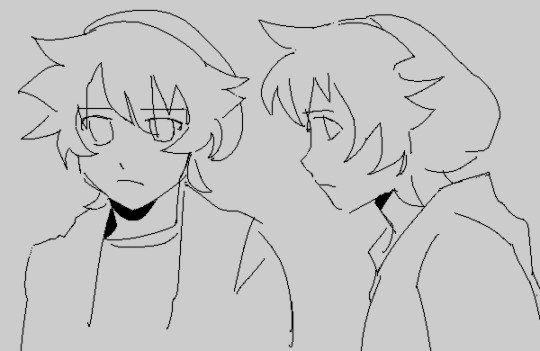

some vaguely on model doodles as i try to work out what is wrong with them (what they look like)
#kostik draws#midoris smile is deceptively hard to draw but he is c: in my head so c: he will be#god theyre just like scarian ....... anyway#midori yttd#shin tsukimi#sou hiyori#fanart#yttd#your turn to die#kimi ga shine#i am Really hungry#i wanted to draw a piece with them together but i got distracted figuring out their designs#which is ok theyre so cute#you can pry pointy nose midori out of my cold dead hands but sou is much harder to wrap my head around#<- a comment completely out of nowhere. forgot i erased my nose comments for the postable png#it was basically that i have no idea how to translate sous nose to anything but the original art style#anyway midori autism/aspd is as canon to me as sou did#by which i mean absolutely categorically canon because i am always correct#thank you friend for talking to me about the sillies btw
147 notes
·
View notes